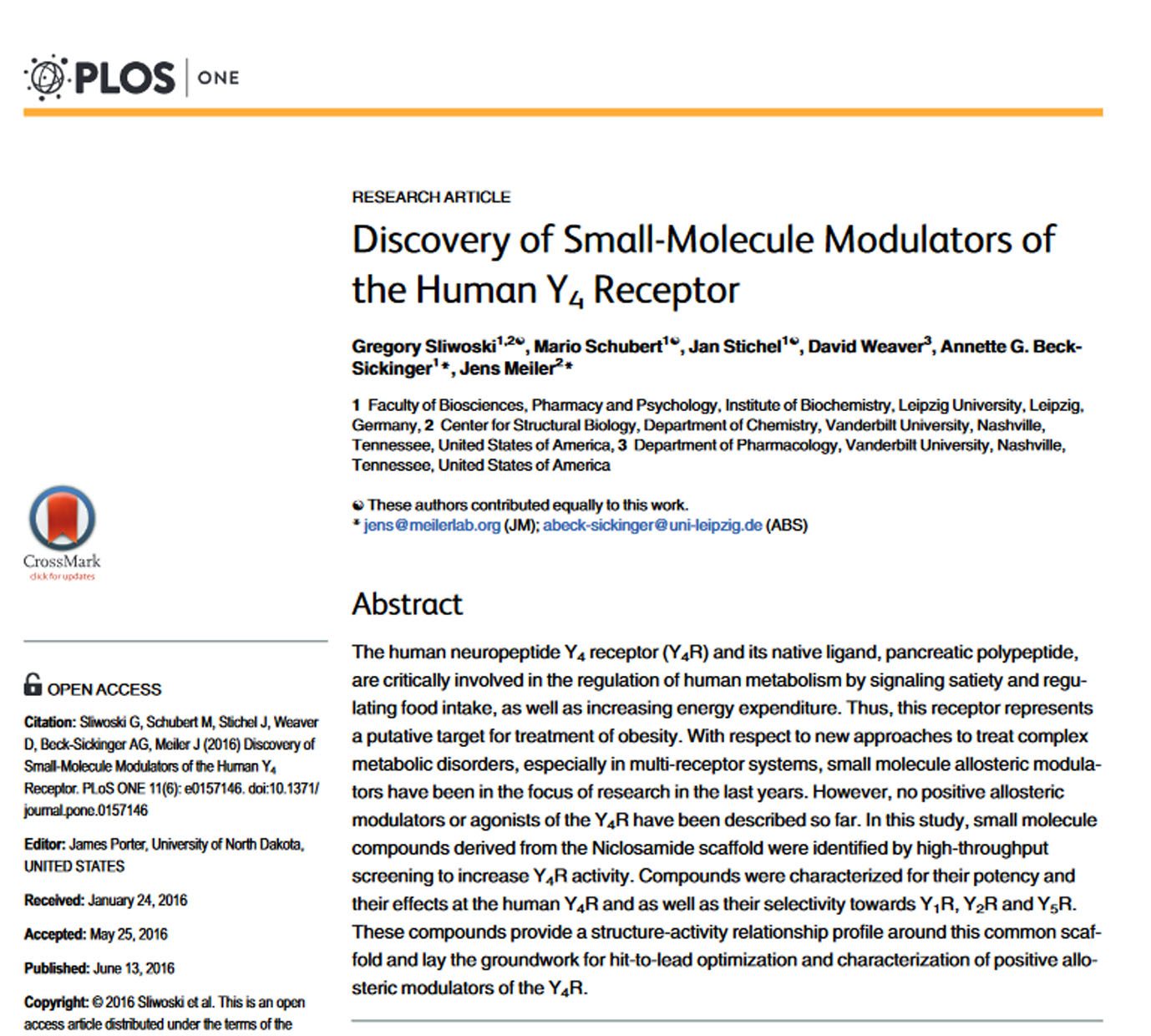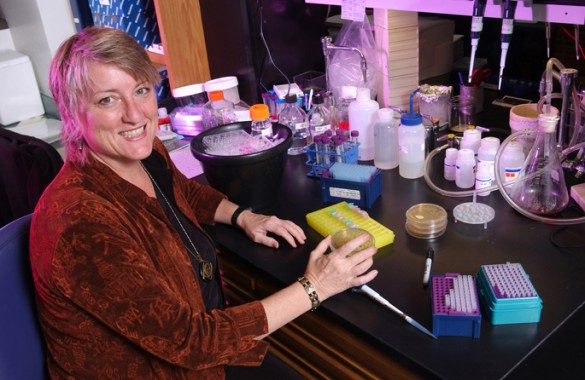(07/04/2016 by Anett Albrecht): A joint publication of Leipzig and Vanderbilt scientists was published in June 2016 in the prestigious journal “PLoS One”. The article continues the series of numerous publications that have emerged already from the long-term collaboration between the Leipzig and Vanderbilt University. Abstract: The human neuropeptide Y4 receptor (Y4R) and its native ligand, pancreatic polypeptide, are critically involved in the regulation of human metabolism by signaling satiety and regulating food intake, as well as increasing energy expenditure. Thus, this receptor represents a putative target for treatment of obesity. With respect to new approaches to treat complex metabolic disorders, especially in multi-receptor systems, small molecule allosteric modulators have been
Biochemical Colloquium – Special Topics in Biochemistry: Prof. Dr. Heidi Hamm, Vanderbilt University Department of Pharmacology, Nashville, TN, USA Date July 13, 2016 / 3 PM Venue Departments of Bioscience, Pharmacy and Psychology, Institute of Biochemistry, Small Lecture Hall (1st Floor), Brüderstraße 34, 04103 Leipzig, Germany. Backround Prof. Hamms work is focused on understanding the molecular basis of signaling mechanisms mediated by G proteins, which are switch proteins. G proteins are normally inactive, but a receptor that has received a specific signal can activate G proteins, leading to changes in the activity of enzymes that produce second messengers such as cyclic AMP and calcium. The resulting changes in cellular activity underlie


